This post may contain affiliate links. Read my disclosure policy here.
When I was growing up, we had a big garden in our backyard and I loved helping my parents plant all sorts of different vegetables. I can still remember how excited I was to pull out a carrot, brush off the sweet smelling dirt, rinse it with the hose and eat it right there standing in the garden as I surveyed the little miracles that I had planted.
Those were the sweetest tasting carrots.
I wish I had that big garden to share with my little girls. But we live in a townhouse with a tiny backyard that gets far too little sunlight. So to let my girls take part in the miracle of growing food, each spring we plant a few fruits and vegetables in pots to grow on our balcony.
It’s amazing how much easier it is to get them to eat carrots and other veggies when they’ve seen how they grow.
They love to hold the tiny seeds in their hands, push them into the dirt and water them every day. Our little pots may only hold a few plants, but my girls learn lessons and a love of real food that they’ll remember for a lifetime.
This year, we planted some special seeds that Kashi Canada sent us as part of their Plant It Forward initiative.
Kashi wants to help all families enjoy getting their hands dirty planting real food – even if it’s only a few seeds grown in a pot on your apartment balcony.
According to the Kashi Plant it Forward survey, less than half of all Canadians (46 per cent) have ever gotten their hands dirty to grow, care for or harvest fresh fruits or vegetables. Even more surprising, one third of Canadians will not visit a farmer’s market or community garden this year.
Kashi has contributed over $100,000 to Evergreen’s Seeding Healthy Communities program to help build and support urban gardens across Canada to allow communities to get closer to real food.
By the end of the year, it is the mission of the Kashi Plant it Forward initiative to have planted or seeded 13,000 edible plants, harvested 7,000 pounds of food and trained 1,750 Canadians in urban agriculture techniques. Over 10,000 people will be engaged with urban gardens and 100 volunteers, including 12 volunteer leaders, will have been enlisted.
I love their new video, When I Grow Up, that reminds us how important it is to help kids get involved and interested in planting and eating real food.
How You Can Join In
When you pick up a box of specially marked Kashi cereal or bars in your local grocery store, Kashi will donate to the Plant it Forward initiative, up to a maximum of $50,000. And you’ll receive a free packet of organic seeds such as carrots, spinach, beets, kale and tomatoes.
[Tweet “Hey Canadians, want to get your hands dirty? @Kashi_CA has something for you… #PlantItForward”]
We’d love to see photos of you and your “little farmers”… share a picture of you or your kids getting your hands dirty planting fresh food using the #PlantItForward hashtag on Twitter or on the Kashi Canada Facebook page.
To learn more about the Plant It Forward initiative and Kashi’s latest product offerings, please visit Kashi.ca and connect on Twitter or Facebook at @Kashi_CA or www.facebook.com/canadakashi.
Share It Forward
We’d love, love, love you to share this post with your friends…
[Tweet “A few seeds can teach many lessons. #PlantItForward with YOUR kids…”]

Disclosure: Thanks to Kashi for helping support our blog by sponsoring this post.
Written by Susan Carraretto, co-founder of 5 Minutes for Mom
Talk with me: @5minutesformom and Facebook.com/5minutesformom
Pin with me at pinterest.com/5minutesformom
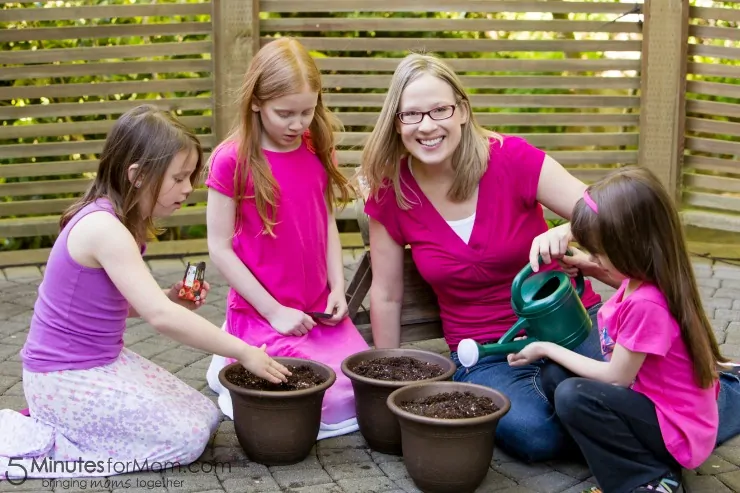
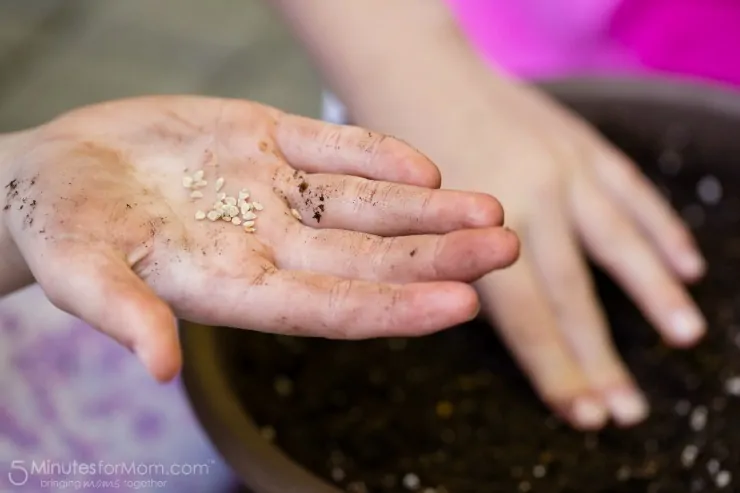
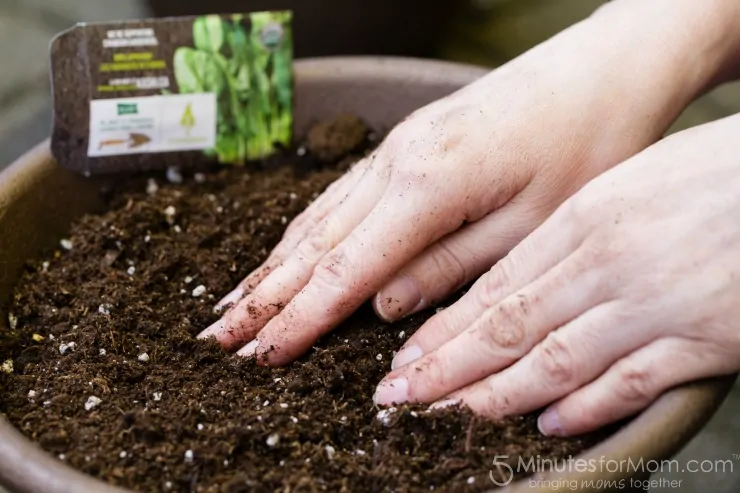
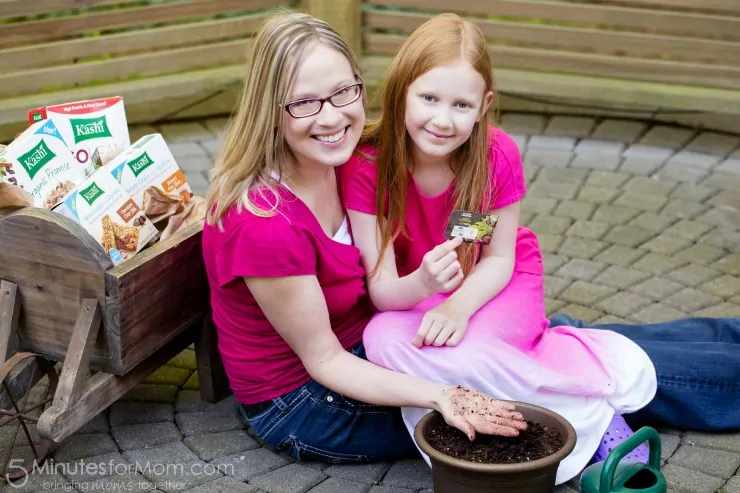
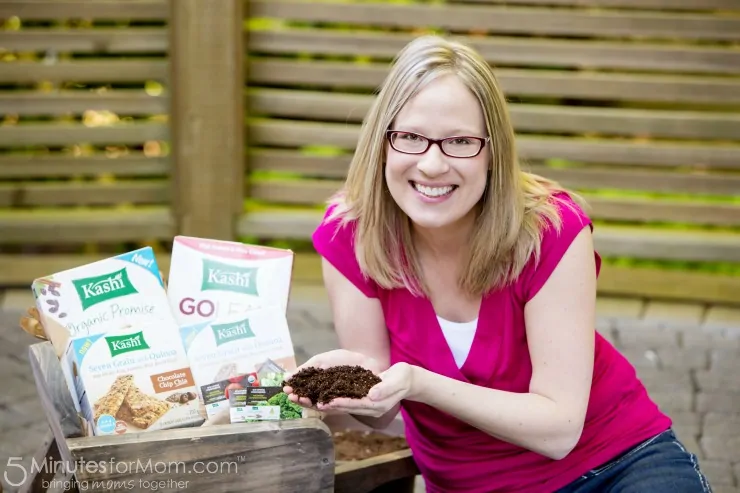
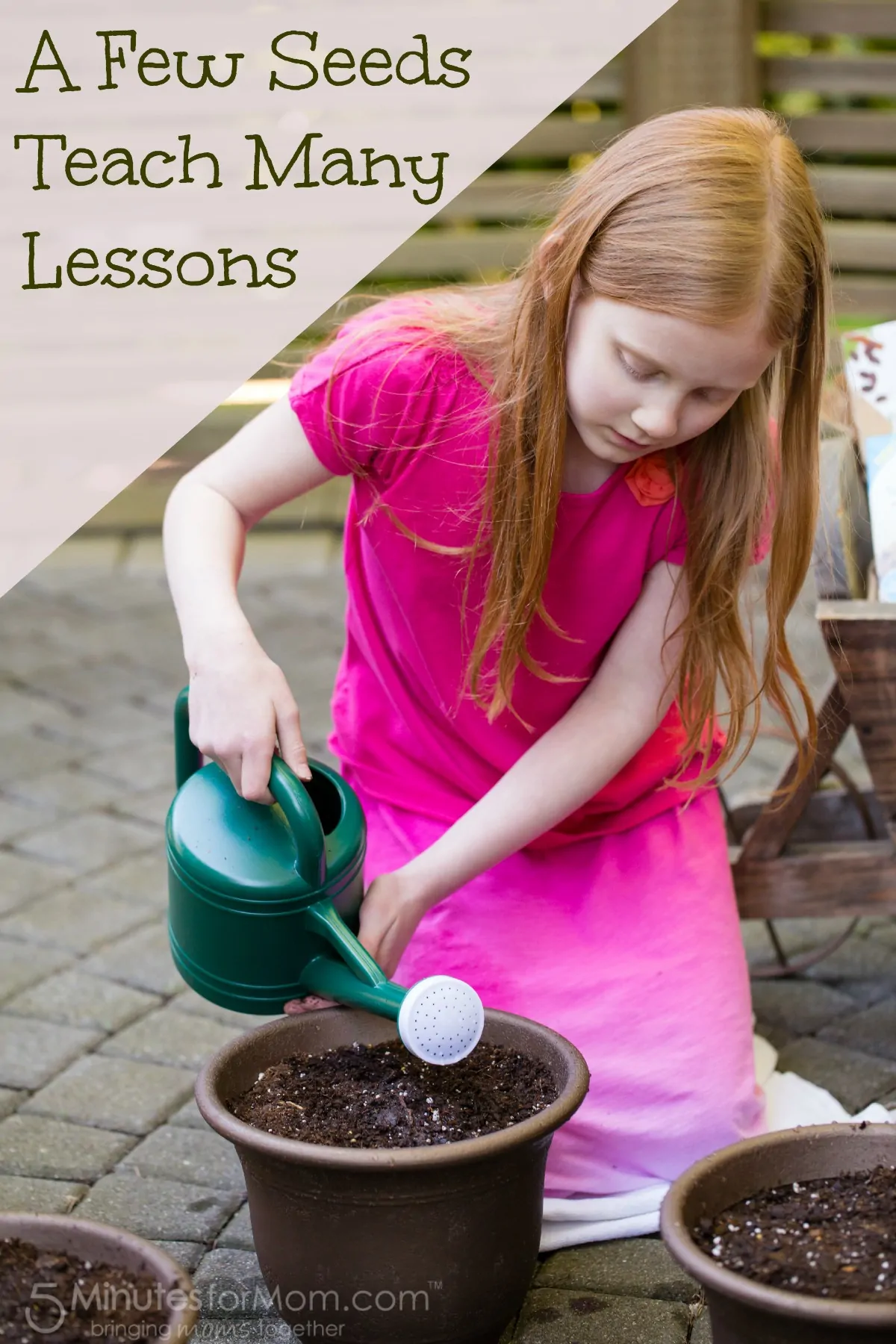









Jade Lorenzini says
In my family it’s a tradition to grow most of our food and we are all strongly related to the ground. We are not exactly farmers, but we mainly eat what we’ve produced. My daughter’s games are all related with planting seeds, but I never forced her about anything. She just loves playing in the dirt and with it and she copies our garden activities in her games. All the summer she spends walking around the garden, picking up and eating vegetables, and observing different insects.
Stephanie says
Here in Italy, we have much greater contact with food, the result of every village/town having its own culinary tradition deeply centred around seasonal produce. ‘Real food’ is the minimum but even still we are ‘removed’. Our local state elementary school, however, is enlightened enough to offer an hour a week of agricultural studies to all classes – my six-year old has harvested corn and turned it into popcorn and polenta, can recognise different types of tree and is currently growing salad in the school vegetable plot. I couldn’t be happier, nor could she!